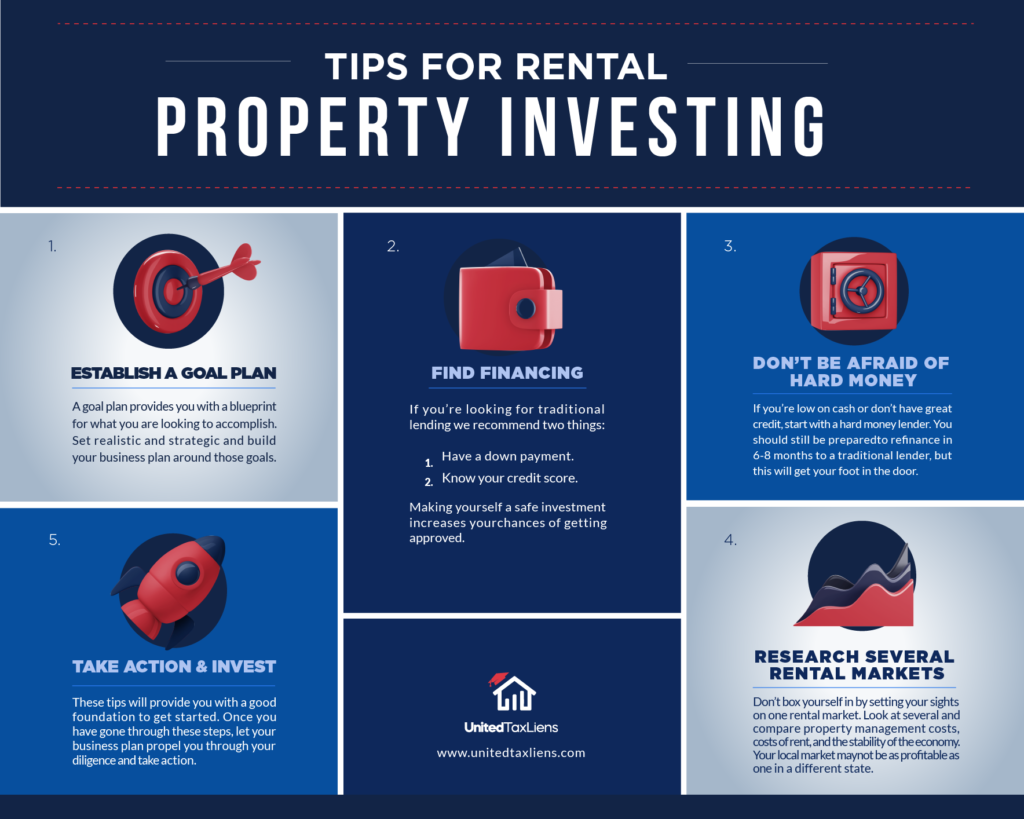Rental property investing can be a way to build long term wealth and increase passive income. Like any investment, the key to rental property investing is knowing what you're getting into. Proper due diligence will save you a world of headaches in the future, so it's also pertinent that you do as much research as possible before committing to any investing endeavor.
Several factors may influence your ability to invest in rentals, so here are a few tips to see if it's right for you.
How to Prepare to be your Own Landlord
While you have the option to hire a landlord, if you want to make sure that rental property investing is lucrative for you, we recommend preparing to do as many repairs on your own as possible. This can mean getting up to snuff regarding the basics of plumbing, drywall repair, and other non-specialist maintenance items.
Another option if you don't want to become a jack of all trades overnight is to hire or put together a team of contractors, handymen, and cleaners willing to work together for the greater good. This will go a long way in ensuring that you don't have to hire a property manager, who can not only be expensive but might create their own set of problems to solve.
How to Take care of Your Debt
Although it may be unlikely to eliminate your debt, we advise that you do as much as possible before completely committing to rental property investing. The golden rule here is to make sure that your profit margin well exceeds your debt. Otherwise, you could quickly create a worse financial situation for yourself, rather than something ideal. In the world of investing, this is otherwise known as the margin of safety.

Four Crucial Points
- Establish a goal plan
- Find financing opportunities
- Research rental markets
- Establish a Rental Property Goal Plan
A goal plan provides you with a blueprint for what you are looking to accomplish with your investment. Rental property investing should be treated like any other business plan. Because real estate can involve a great deal of money, it's essential to know the numbers and determine what steps you need to take to meet your goals. Furthermore, cultivating an investor mindset is crucial. Having a confident attitude will help produce better results and help you achieve your goals more quickly.
How to Find Financing Opportunities
Securing financing might be the biggest challenge for some investors, but it's not impossible. It can be intimidating to figure out what type of financing is best for your business plan, but understanding these three things can make the process easier:
1. Loan to Value (LTV)
2. Make sure you're a smart investment
3. Don't be afraid of hard money lenders
Loan to Value
Many investors prefer traditional lending. If this is the route you're choosing, make sure you have a down payment. Having a down payment will lower your LTV and save you money on interest and fees.
Make Sure You're a Smart Investment
Many factors can determine your eligibility for financing, but this is the easiest to overcome. Building your credit score will heavily increase your chances of getting the right loan. Furthermore, a good credit score, coupled with a healthy business plan can significantly increase your odds of being approved.
Don't Be Afraid of Hard Money Lenders
Hard money lenders are an excellent option for those that do not have a sizeable down payment. This is typically a short-term solution for people that are unable to acquire traditional financing. Sitting down with a conventional lender can help you know what kind of requirements you'll need to meet when you need to refinance.
Of course, the cost of borrowing money might be relatively cheap in 2021, but the interest rate on an investment property is generally higher than a regular mortgage interest rate. If you decide to finance your purchase, you need a low mortgage payment that won't eat into your monthly profits too much.
Research Rental Markets
Although it is common sense, the last thing that any rental property investor wants is to commit to an area that is in decline, has a high crime rate, or for whatever reason, is on a downward spiral. The key elements to note here are: low property taxes, a reputable school district, and additional perks such as local access to parks, malls, restaurants, and movie theaters. The first thought of many investors is that they want to invest locally. Before doing so, it's essential to consider the conditions of that rental market. Knowing property management costs, rental costs, and the local economy's stability can provide you with a better understanding of how a rental property in that area will thrive.
Additionally, public transportation and a growing job market are clear indicators of an upward trend in market value and profit margin.
Central Risks
As with any career endeavor, it's key to avoid pitfalls to be successful early on. Although rental income is passive, tenants can be a pain to deal with unless you use a property management company. Rental income may not cover your total mortgage payment. Unlike stocks, you can't instantly sell real estate if the markets go sour or you need cash. Entry and exit costs can be high. If you don't have a tenant, you still need to pay all the expenses. Factoring of unexpected costs is also crucial to note here.
It's not just maintenance and upkeep costs that will eat into your rental income. There's always the potential for an emergency to crop up—roof damage from a hurricane, for instance, or burst pipes that destroy a kitchen floor. Realistically it would be best if you planned to allocate 20% to 30% of your rental income for these types of costs, so you have a fund to pay for timely repairs.
Finally, while it can be extremely tempting to look for a house that you can get at a bargain, fix and flip it into a rental property. But if this is your first property, that's probably a bad idea. Unless you have a contractor who does quality work on the cheap—or you're skilled at large-scale home improvements—you likely would pay too much to renovate. Instead, look for a home that is priced below the market and needs only minor repairs.
Rewards
When it is all said and done, all investing carries within it both risk and reward–they are inseparable from each other in any aspect of investing, even outside the confines of real estate itself.
Some rewards are as follows. Because your income is passive, notwithstanding the initial investment and upkeep costs, you can earn money while putting most of your time and energy into your regular job. If real estate values increase, your investment also will rise in value. You can put real estate into a self-directed IRA (SDIRA).
Rental income is not included as part of your income that's subject to Social Security tax. The interest you pay on an investment property loan is tax-deductible. Short of another crisis, real estate values are generally more stable than the stock market. Unlike investing in stocks or other financial products that you cannot see or touch, real estate is a tangible physical asset.
Take Action and Get Started
These tips provide a good foundation for rental property investing. Once you have an idea of what you're looking to accomplish with real estate investing, start building a business plan. Use that business plan to propel you through your due diligence, and then start taking action.
A great deal of the success you can derive from tax lien investing has to do with locating diamonds in the rough. With Marketplace Pro software, you can quickly and easily identify properties offered in county auctions. You can learn more about Marketplace Pro by contacting us today and scheduling a demonstration.



